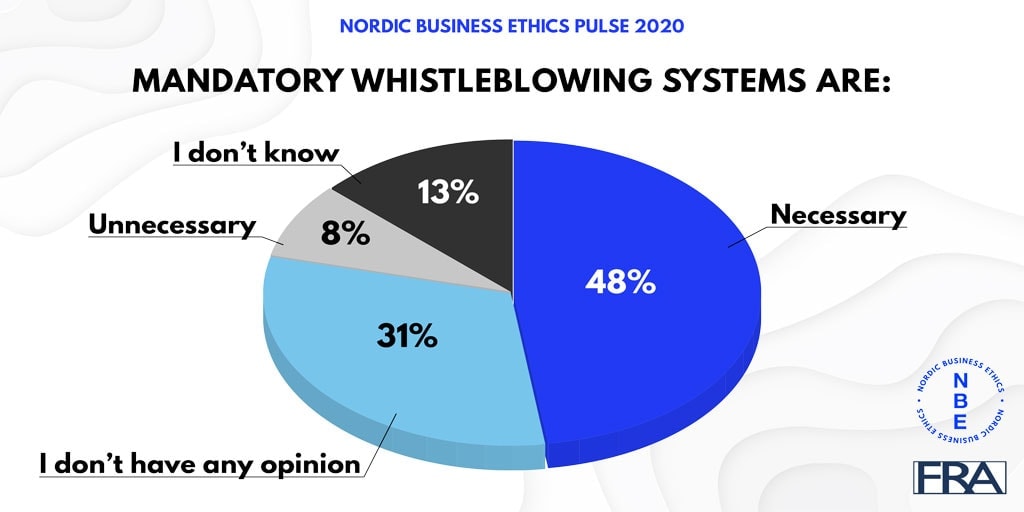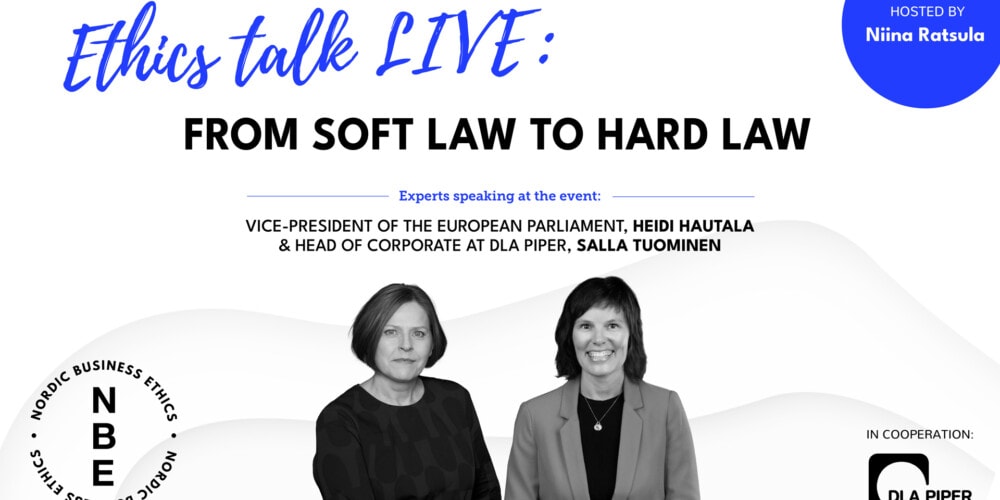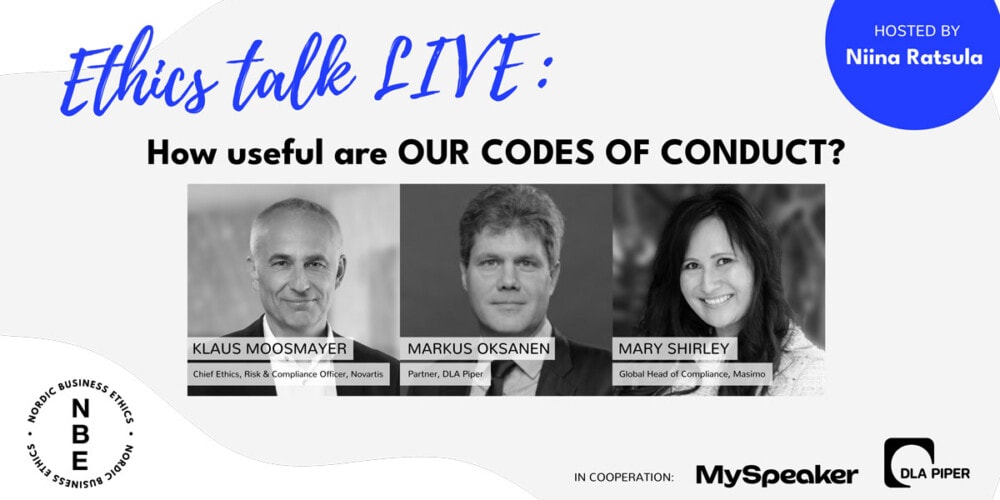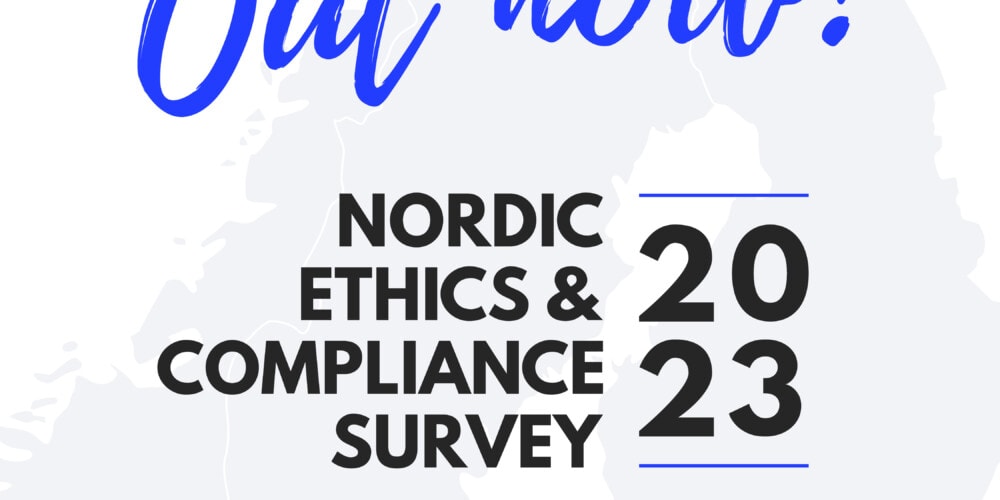Whistleblowing systems: A threat or an opportunity?
European Parliament adopted regulations for EU-wide whistleblower protection on April 16, 2019. The directive was officially entered into force on late 2019. EU member states are obliged to implement the directive into their own national laws by the end of 2021. In practice means, for example, that all companies within EU who have more than 50 employees, will need to implement a whistleblowing system into their operations.
The need and value of whistleblowing systems is a no brainer for an ethics & compliance professional. Yet I bet that most of us commonly face colleagues with less enthusiastic emotions towards them. In the Nordic context, whistleblowing is many times associated with the lack of trust and a whistleblower is perceived as a snitch.
But are whistleblowing channels necessary?
Managers CONSIDEr WHISTLEBLOWING less NECESSARY than employees do
In the most recent Nordic business ethics pulse we wanted to know how the 4.000 respondents from Denmark, Finland, Norway and Sweden felt about mandatory whistleblowing systems.
48 % of the respondents do believe that whistleblowing systems are mandatory. Over 30%, however, did not have an option and only 8% felt that they are unnecessary. What we find most interesting – and worrying – is that the respondents in managerial positions considered whistleblowing systems unnecessary twice as often as employees in non-managerial positions: 17% of top management and 11% of line management considered whistleblowing systems unnecessary whereas only 7% of the employees felt the same way.

How to get the management buy in?
Clearly, if management sees whistleblowing as more of a threat than a possibility, we have a problem. If the management doesn’t support the idea of fostering a speak up culture, the benefits of such system will remain weak. According to my experiences, a typical reason for a negative attitude is purely a lack of understanding and knowledge on whistleblowing. Thus, we should keep on educating leaders on why whistleblowing systems matter. To support your communication, here’s atleast a few points to consider:
- Employees usually know early when things are wrong. All of the huge corporate scandals like Danske Bank, Volkswagen or Theranos have had employees who have tried to blow the whistle but who have been ignored. It’s very possible that the ultimate scandals could have been avoided, or atleast significantly minimized, if those voices would have been heard early. The worst thing you can do to your corporate culture is to retaliate people who try to speak up. I bet that the organisations who have been guilty of doing this, have had deep regrets later on.
- It’s better to know early than read it from the newspaper. The EU directive provides protection also to the employees who use external channels (e.g. authority or media) to report their concerns. This is why companies should pay attention not only on technically setting up a system, but also on how the system is communicated to employees and how people are encouraged to use it.
- Early signals on issues. Whistleblowing reports do not only involve huge incidents of fraud and corruption (and when they do, you should be happy to receive this information). They may contain also valuable information about some cultural or operative issues that needs to be fixed before they expand into scandals. Think about for example #metoo; if the organizations who have had cultural issues involving sexual harrassment would have had appropiate whistleblowing mechanisms in place ages ago, where would they be today?
- Protection for the company. A good whistleblowing system and related investigation process does not only protect the employee reporting an issue. It also may protect the company and any related party during and after the investigation.
- Reduce losses when misconduct occurs. According to ACFE, organisations that did not have a whistleblowing system in place suffered losses that were twice the size compared to those who did have a whistleblowing system.
So, I would answer the question on whether whistleblowing is a threat or an opportunity, I would pose a follow up question: If you consider it a threat, can you explain why you feel that way? If you aim to lead you organization in a transparent, responsible and humble manner, should you have anything to hide? And if and when there are any issues, wouldn’t you want to be the first one to hear about it? And if those allegations would be shown, after a diligent investigation, to be false, you should have nothing to worry about.
New podcast out next week
We will continue the discussion on whistleblowing next week in our new podcast episode with a special guest. Stay tuned!
Niina



